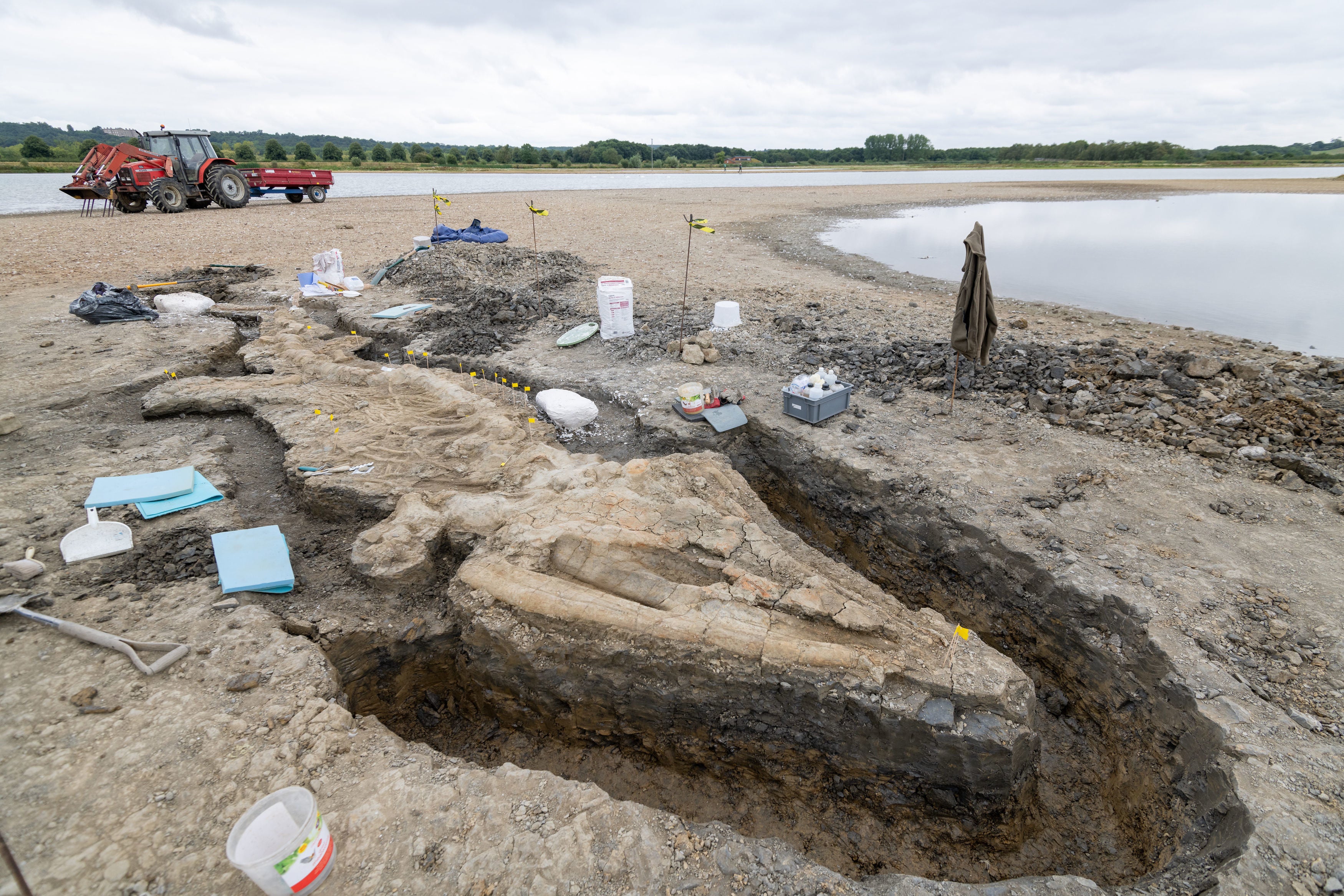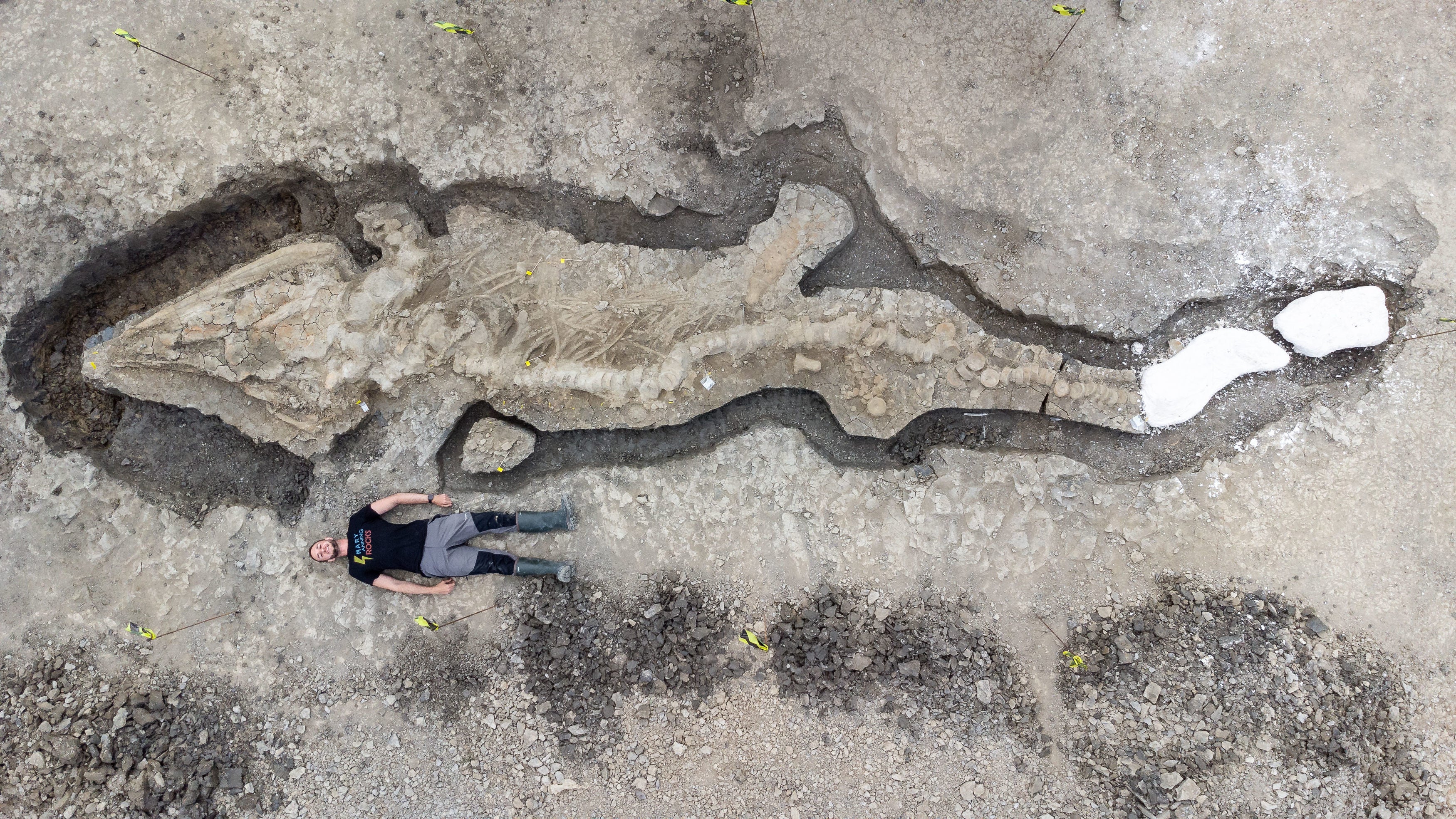Giant 32ft ‘sea dragon’ found in Midlands hailed one of best fossil finds in UK history
Fossil is largest and most complete of its kind ever found in UK
Your support helps us to tell the story
From reproductive rights to climate change to Big Tech, The Independent is on the ground when the story is developing. Whether it's investigating the financials of Elon Musk's pro-Trump PAC or producing our latest documentary, 'The A Word', which shines a light on the American women fighting for reproductive rights, we know how important it is to parse out the facts from the messaging.
At such a critical moment in US history, we need reporters on the ground. Your donation allows us to keep sending journalists to speak to both sides of the story.
The Independent is trusted by Americans across the entire political spectrum. And unlike many other quality news outlets, we choose not to lock Americans out of our reporting and analysis with paywalls. We believe quality journalism should be available to everyone, paid for by those who can afford it.
Your support makes all the difference.Scientists have hailed the discovery of a 32ft fossilised “sea dragon” in a Midlands reservoir as one of the “greatest finds” in British palaeontological history.
The ichthyosaur, approximately 180 million years old, is the largest and most complete fossil of its kind ever found in the UK. It has a skeleton around 10 metres in length and a skull weighing approximately one tonne.
It was discovered by Joe Davis of Leicestershire and Rutland Wildlife Trust during a routine draining of a lagoon island at Rutland Water in February 2021.
The first ichthyosaurs, which are called sea dragons because they tend to have very large teeth and eyes, were discovered by fossil hunter and palaeontologist Mary Anning in the early 19th century.
“Despite the many ichthyosaur fossils found in Britain, it is remarkable to think that the Rutland ichthyosaur is the largest skeleton ever found in the UK,” Dr Dean Lomax, a palaeontologist who has studied the species, said.
“It is a truly unprecedented discovery and one of the greatest finds in British palaeontological history,” he added.

Ichthyosaurs, which were marine reptiles, first appeared around 250 million years ago and went extinct 90 million years ago. They varied in size from one to more than 25 metres in length and resembled dolphins in general body shape.
The remains were dug out by a team of expert palaeontologists from around the UK in August and September.
Two incomplete and much smaller ichthyosaurs were found during the initial construction of Rutland Water in the 1970s. However, the latest discovery is the first complete skeleton.

Dr Mark Evans of the British Antarctic Survey said: “I’ve been studying the Jurassic fossil reptiles of Rutland and Leicestershire for over 20 years.
“When I first saw the initial exposure of the specimen with Joe Davis I could tell that it was the largest ichthyosaur known from either county.
“However, it was only after our exploratory dig that we realised that it was practically complete to the tip of the tail.”

He added: “It’s a highly significant discovery both nationally and internationally but also of huge importance to the people of Rutland and the surrounding area.”
Nigel Larkin, a specialist palaeontological conservator, added: “It’s not often you are responsible for safely lifting a very important but very fragile fossil weighing that much.
“It is a responsibility, but I love a challenge. It was a very complex operation to uncover, record, and collect this important specimen safely.”
The excavation of the remains will feature on BBC Two’s Digging For Britain on Tuesday at 8pm.

Join our commenting forum
Join thought-provoking conversations, follow other Independent readers and see their replies
Comments